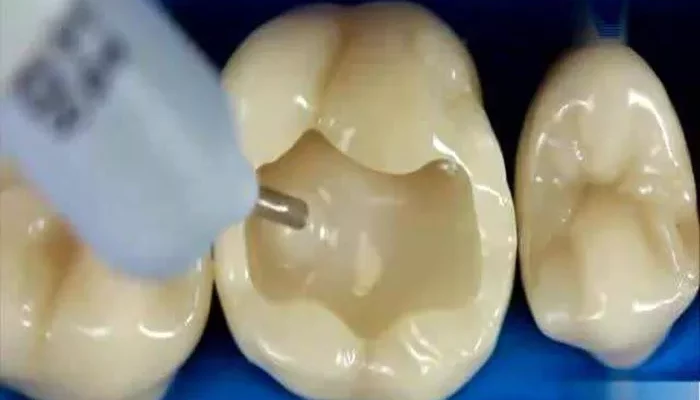Dental fillers, also known as dental restorations or fillings, are essential in repairing teeth damaged by decay, cracks, or wear. They are used to restore the function and appearance of teeth, preventing further damage and preserving oral health.
The cost of dental fillers can vary significantly, depending on various factors. This article aims to provide a detailed and scientifically accurate explanation of the factors that influence the cost of dental fillers, as well as an overview of the different types of fillers available.
Factors Influencing the Cost of Dental Fillers
Several factors contribute to the overall cost of dental fillers. Understanding these factors can help patients make informed decisions about their dental care.
Type of Filler Material
Composite Resin Fillers: Composite resins are a popular choice for dental fillers because they can be matched to the natural color of the tooth. They are durable and aesthetically pleasing. The cost of composite resin fillers can range from 600 per tooth, depending on the brand, quality, and extent of the restoration needed.
Amalgam Fillers: Amalgam fillings, made of a mixture of metals including silver, tin, copper, and mercury, are less expensive than composite resins. They are durable and effective but do not match the natural color of the tooth. The cost of amalgam fillings typically ranges from 300 per tooth.
Porcelain Inlays and Onlays: For larger restorations, porcelain inlays and on lays may be used. These are custom-made in a dental laboratory and then bonded to the tooth. They are highly aesthetic and durable. The cost of porcelain inlays and onlays can range from 4,000 per tooth, depending on the size and complexity of the restoration.
Glass Ionomer Cement Fillers: Glass ionomer cement fillings release fluoride, which helps prevent future decay. They are often used in children’s teeth and in areas where decay is a concern. The cost of glass ionomer cement fillers is generally lower than composite resins, ranging from 400 per tooth.
Extent of Damage
The cost of dental fillers also depends on the extent of damage to the tooth. Smaller cavities require less material and time to fill, resulting in lower costs. Larger cavities or more extensive damage may require more material, longer treatment time, and possibly additional procedures such as root canal therapy, which can increase the overall cost.
Location of the Tooth
The location of the tooth being filled can also affect the cost. Fillings on front teeth, which are more visible, may require more aesthetic considerations and therefore more expensive materials. Fillings on molars, which are less visible, may use more durable but less expensive materials.
Dental Insurance
Dental insurance can significantly offset the cost of dental fillers. Many dental insurance plans cover a portion of the cost of restorative treatments, including fillings. The exact coverage depends on the insurance plan and the policyholder’s benefits. It is important for patients to check their dental insurance coverage before scheduling treatment.
Geographic Location
The cost of dental fillers can also vary depending on the geographic location. Areas with higher costs of living and more expensive real estate tend to have higher dental treatment costs. Conversely, areas with lower costs of living may have more affordable dental treatment options.
Dentist’s Experience and Expertise
The experience and expertise of the dentist performing the filling can also affect the cost. Highly skilled and experienced dentists may charge more for their services, but they also tend to provide higher-quality treatment with better outcomes.
Types of Dental Fillers
Understanding the different types of dental fillers can help patients make informed decisions about their treatment options and associated costs.
Direct Fillings
Composite Resins: As mentioned earlier, composite resins are a popular choice for direct fillings. They can be matched to the natural color of the tooth, making them aesthetically pleasing. They are also durable and can withstand the forces of chewing and biting.
Glass Ionomer Cement: Glass ionomer cement fillings are less expensive than composite resins and release fluoride, which helps prevent future decay. They are often used in children’s teeth and in areas where decay is a concern.
Amalgam Fillings: Amalgam fillings are made of a mixture of metals and are less expensive than composite resins. They are durable but do not match the natural color of the tooth.
Indirect Fillings (Inlays and Onlays)
Porcelain Inlays and Onlays: Porcelain inlays and onlays are custom-made in a dental laboratory and then bonded to the tooth. They are highly aesthetic and durable, making them an excellent choice for larger restorations.
Gold Inlays and Onlays: Gold inlays and onlays are another option for indirect fillings. They are highly durable and can last for many years. However, they are more expensive than porcelain and may not be as aesthetically pleasing.
Conclusion
In conclusion, the cost of dental fillers can vary significantly depending on various factors, including the type of filler material, extent of damage, location of the tooth, dental insurance coverage, geographic location, and dentist’s experience and expertise. Understanding these factors can help patients make informed decisions about their dental care and choose the most appropriate treatment option for their needs. By working with a skilled and experienced dentist, patients can ensure high-quality treatment with predictable outcomes, regardless of the cost. Regular dental check-ups and good oral hygiene practices can help prevent the need for dental fillers and reduce overall dental treatment costs.
Related topics:

